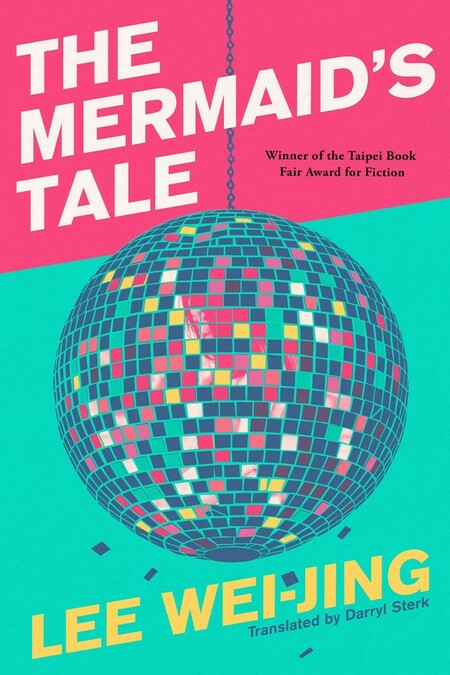Too often in life we are caught in that precariously unfulfilling place between vaulting hopes and dreams (which we all have whether we admit to them or not) and grimly unadorned reality where disappointment is an all too common presence.
While many of us find a way out from this invidious position, making enough of an accommodation with long-held hopes that reality becomes bearable enough, Summer, a Taiwanese ballroom dancing devotee in her early thirties who is jobless and who lives alone, is, as we begin The Mermaid’s Tale, Lee Wei-Hing’s astonishingly, quietly evocative final novel (she sadly passed away from cancer in November 2018), yet to find an escape route.
Trapped in a world where the man must lead and the woman must follow, Summer finds herself caught in a fruitless search for a ballroom dancing Mr. Right, a man who can lead not just into skillful, more artistic dancing but perhaps a life that lives up to the expectant hype of her youth.
While her search would be difficult enough anyway where every woman with aspirations of ballroom dancing perfection is after a small pool of talented enough and available men – the size varies depends on the classes you take and the dance studio where you take them – it’s further complicated by the acidic presence of past pain including a control-freak mother who toxically mocked her daughter’s body and sense of self at every turn, her cousin’s attempted suicide and a night of sex with a classmate which led not to love (or even enjoyable lust) than dismissive cruel dismissal.
That said, they were still amazing, dancing at that level at that age — two or even three decades older than me, some of them. There were sixty-year-olds in that class who had started in middle age and were now much more advanced than me. Hearing their stories helped me find my fighting spirit.
Despite all the obstacles arrayed against her, Summer somehow retains a quietly burbling hopefulness that is movingly tenacious, and which, while it ebbs and flows depending on circumstance, persists throughout the languidly affecting length of The Mermaid’s Tale.
As she sorts through the diminishingly small group of likely candidates, all of whom have issues of one degree or another, among them the cruelly unkind Youlin who hails from a dancing dynasty, and her gay dance teacher Donny who is mostly kindly accommodating but is too gentlemanly officious at times too, she is forced again and again to ask herself what it is she wants from life.
Like many of us, the answer to that question does not come in any kind of linear form, with doubts and uncertainties, twisted hope and rationally-empty optimism which continues to hold onto buoyantly upbeat expectation in direct contravention to all evidence to the contrary.
But so beautifully written is The Mermaid’s Tale, its title taken from Summer’s dreamy self-story that is a mermaid come to land who is seeking, in dance, to regain her former underwater grace and elegant fluidity, that you never once feel like Summer is a fallible fool unable to read the signs around her.
The author beautifully takes us into Summer’s brokenly hopeful world, allowing us to understand how a woman who has been told all her life that she is worth little and deserves even less, can accept some pretty basic treatment from narcissists whose only point of reference is how treating others badly will elevate themselves.
As you read Summer’s attempts to make her dancing dreams come true, all accompanied by the kind of effort and dedication that even Donny admits few others possess unless they are professionals on the circuit, your heart goes out to her because all the wants is to find happiness and fulfilment doing something she loves and to do it with someone who will treat her decently.
Possessed of a lyrical whimsicality where mesmerisingly ethereal tales of life underwater exist cheek-by-jowl with the cruelty of others and grimly unsatisfying reality, The Mermaid’s Tale is a quietly-spoken novel that packs a lot of emotional punch into its short but beautifully crafted length.
Summer may often observe and quietly accept what is dished out to her, a legacy of growing up with a mother whose ardour for belittling her child only increased if she was challenged, but beneath all the passivity is a woman bursting with some verdantly expansive and alive dreams for the future.
They might be beaten down time and again or be answered only for Summer to find out the answer is definitely not the hope she is hoping for – Youlin eventual agreement to be her dance partner does not begin, fitfully endure or end well – but somehow they remain and as they do, your love and admiration for the protagonist of the The Mermaid’s Tale grows exponentially.
‘You’re wrong there, Summer. You’re overanalysing. You’re making dance a lot more complicated than it needs to be. You’re trying to dance rumba with your brain. No wonder you find it hard. It’s just walking down the street, girl, that’s it. You have to forget the idea of dancing. All dancing is walking down the street, in this really smooth, fluid, elaborate way, walking with your head held high.
That’s all we really need in our lives, Summer, to walk beautifully. That’s all there is.’
She is, for all the fallbacks and acquiescence to tyrannical smaller souls than hers, one of the strongest protagonists you will ever come across in a book because she persists where many others would simply not.
And even better, when it becomes clear that perhaps her dreams won’t be realised at all, or at least not in the way she hoped, she pivots and embraces a life that ends up being better than the one she was pursuing with some quietly passionate urgency.
Written in what is described on the inside of the book’s front cover as “the author’s darkest days”, and imbued with enough pain and disappointment for several lifetimes, The Mermaid’s Tale is a dreamily uplifting story of how staying true to who you are, whether that means your dreams find fulfillment or not, can yield dividends far beyond what you expect.
That Summer ends up in a wholly different place to what she once intended is not necessarily a bad thing because the end result is evidence not of expectations aggressively prosecuted into being, but of a person who, despite all manner of past hurt and pain, stays the course and finds happiness that is hard fought, groundedly real, and a reassurance that while life may not meet our expectations, it can still be a very beautiful, enlivening thing indeed.

